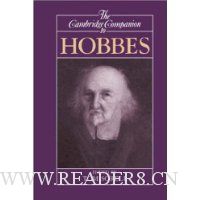| 商家名称 | 信用等级 | 购买信息 | 订购本书 |
 |
The Cambridge Companion to Hobbes |  |
|
 |
The Cambridge Companion to Hobbes |  |

The Companion follows the order of Hobbes's own system, working from physics to psychology to politics. His views on psychology, moral philosophy, and political philosophy--traditionally considered the crucial topics of his system--are expertly handled by Bernard Gert, Richard Tuck, and Alan Ryan. Perhaps more gratifying are the essays on less familiar topics: Yves Charles Zarka reveals Hobbes's unexpected commitment to what superficially looks like Aristotelian metaphysics, while Hardy Grant discusses his career in mathematics, a diversion marred by an embarrassing claim to have squared the circle. --Glenn Branch
Review
"...the general quality is high..." Choice
"The Cambridge Companion series have produced fine intermediate introductions to the principle philosophers of the Western canon. This one on Hobbes does the philosopher just fine....This introduction to modern reading of him is excellent. Recommended." The Reader's Review
"...the essays in The Cambridge Companion provide an excellent overview of the current state of Hobbes studies. Despite a few lapses in editing, it is an attractive volume that can be recommended to anyone with a serious interest in Hobbes' thought." Donald Rutherford, International Philosophical Quarterly
"...a valuable resource for those interested in learning more about the graet English philosopher." The Philosophical Review
Product Description
Hobbes had distinctive views in metaphysics and epistemology, and wrote about such subjects as history, law, and religion. He also produced full-scale treatises in physics, optics, and geometry. All of these areas are covered in this Companion, most in considerable detail. The volume also reflects the multidisciplinary nature of current Hobbes scholarship by drawing together perspectives on Hobbes that are now being developed in parallel by philosophers, historians of science and mathematics, intellectual historians, political scientists, and literary theorists.